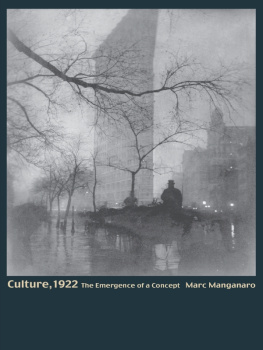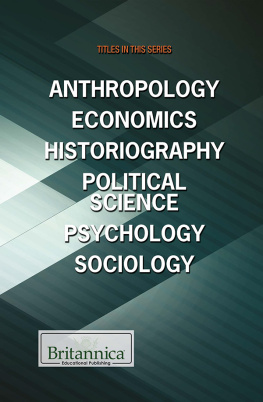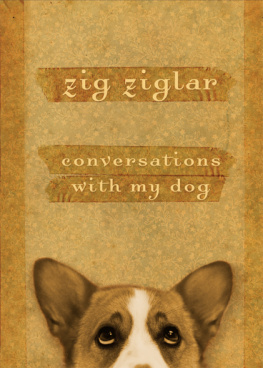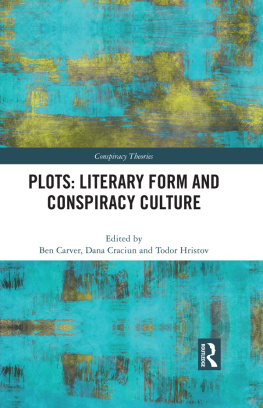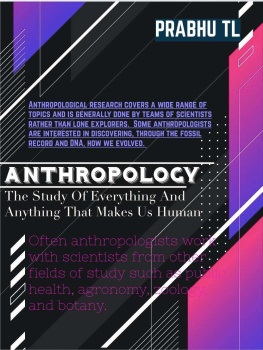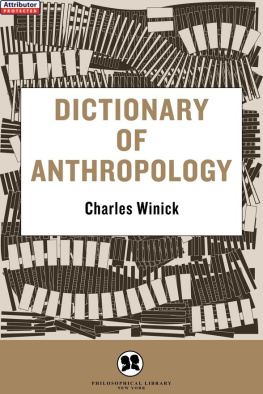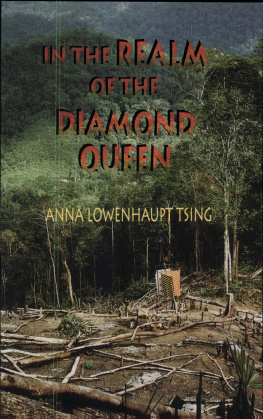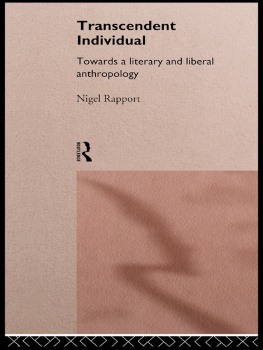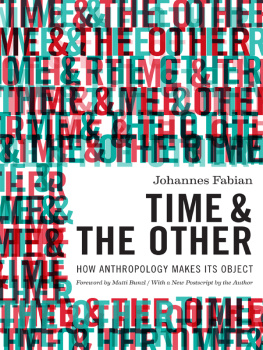Manganaro - Culture, 1922 and after conversations in anthropology and literary study
Here you can read online Manganaro - Culture, 1922 and after conversations in anthropology and literary study full text of the book (entire story) in english for free. Download pdf and epub, get meaning, cover and reviews about this ebook. City: Princeton;N.J;Woodstock, year: 2002, publisher: Princeton University Press, genre: Romance novel. Description of the work, (preface) as well as reviews are available. Best literature library LitArk.com created for fans of good reading and offers a wide selection of genres:
Romance novel
Science fiction
Adventure
Detective
Science
History
Home and family
Prose
Art
Politics
Computer
Non-fiction
Religion
Business
Children
Humor
Choose a favorite category and find really read worthwhile books. Enjoy immersion in the world of imagination, feel the emotions of the characters or learn something new for yourself, make an fascinating discovery.
- Book:Culture, 1922 and after conversations in anthropology and literary study
- Author:
- Publisher:Princeton University Press
- Genre:
- Year:2002
- City:Princeton;N.J;Woodstock
- Rating:4 / 5
- Favourites:Add to favourites
- Your mark:
- 80
- 1
- 2
- 3
- 4
- 5
Culture, 1922 and after conversations in anthropology and literary study: summary, description and annotation
We offer to read an annotation, description, summary or preface (depends on what the author of the book "Culture, 1922 and after conversations in anthropology and literary study" wrote himself). If you haven't found the necessary information about the book — write in the comments, we will try to find it.
Manganaro: author's other books
Who wrote Culture, 1922 and after conversations in anthropology and literary study? Find out the surname, the name of the author of the book and a list of all author's works by series.
Culture, 1922 and after conversations in anthropology and literary study — read online for free the complete book (whole text) full work
Below is the text of the book, divided by pages. System saving the place of the last page read, allows you to conveniently read the book "Culture, 1922 and after conversations in anthropology and literary study" online for free, without having to search again every time where you left off. Put a bookmark, and you can go to the page where you finished reading at any time.
Font size:
Interval:
Bookmark:
Culture, 1922

Culture, 1922
THE EMERGENCE OF A CONCEPT
Marc Manganaro
PRINCETON UNIVERSITY PRESS
PRINCETON AND OXFORD
Copyright 2002 By Princeton University Press
Published by Princeton University Press, 41 William Street,
Princeton, New Jersey 08540
In the United Kingdom: Princeton University Press,
3 Market Place, Woodstock, Oxfordshire OX20 1SY
All Rights Reserved
Library of Congress Control Numer: 2002106616
eISBN: 978-1-40082-522-6
British Library Cataloging-in-Publication Data is available.
This Book has been Composed in Times with Trump Mediaeval Display
Printed on acid-free paper. 
www.pupress.princeton.edu
Printed in the United States of America
1 3 5 7 9 10 8 6 4 2
For my parents,
Ross and Alice Manganaro
Contents
Acknowledgments
THIS BOOK HAS BEEN a long time in the making, and its completion was made possible by more people than can be named here. I do want to thank the English department of Rutgers University-New Brunswick for its consistent support, and especially Barry Qualls and Cheryl Wall, who expertly chaired the department in the years during which I worked on this book. I also want to thank colleagues in the department whose advice on this project over the past several years proved invaluable: mainly, Brad Evans, Marjorie Howes, George Levine, John McClure, Richard Miller, Bruce Robbins, and again Cheryl Wall. And to my graduate students I owe gratitude for the insights and generosity they have brought to me both inside and outside of the classroom: Eric Aronoff, Michael Goeller, Anthony Lioi, and Katherine Lynes, to name but a few.
For intellectual support outside of Rutgers, Id like to extend my thanks to friends and colleagues Jim Boon, Clifford Geertz, Richard Handler, Susan Hegeman, and Michele Richman. I am also grateful to Joanne Allen, whose copy editing of the manuscript I am sure improved it immeasurably, and to Princeton University Press for its support: special thanks of course goes to Mary Murrell for her expertise and patience. And I would like to thank JamesJoyce Quarterly for its publication (in its Summer/Fall 1998 issue) of Joyce material that appears in chapter 4, and Michael Bell for the part he played in the publication of my essay on Eliot in the volume Myth and the Making ofModernity (Rodopi, 1998).
I would like to express my great thanks to my many siblingsToni, Ross, Steve, Ann, Joe, and Andrea, and their familiesfor helping to get me through these past years, and for simply being fun to be around. And so many thanks to my children, Anthony, Thomas, and Rania, for their great great love, their inspiration, their compassion and wit and warmth, and their knowing and trusting that I am always there for them. To my wife Nicole, utterly, for her love, her support, her patience, her knowing me and being with me and her sharing with me all good things. Finally, this book is dedicated to my parents Ross and Alice Manganaro, who this year celebrated fifty years of marriagefor their love, and giving me whatever those things are that got me wherever I am.
Culture, 1922

I n t r o d u c t i o n

CULTURE, ANTHROPOLOGY AND THE LITERARY MODERN
IN THE 1987 VOLUME Critical Terms for Literary Study Stephen Greenblatt opens his entry on culture with the Victorian anthropologist Edward Tylors famous founding definition (1871) of the anthropological concept of culture as that complex whole which includes knowledge, belief, art, morals, law, custom, and any other capabilities and habits acquired by man as a member of society. Greenblatt then follows with the question whether culture as a concept is useful to students of literature. The answer, Greenblatt quickly responds, may be that it is not.
The problem with culture, Greenblatt continues, is that the term as Tylor uses it is almost impossibly vague and encompassing, and the few things that seem excluded from it are almost immediately reincorporated in the actual use of the word. Culture as a term, Greenblatt asserts, is repeatedly used without meaning much of anything at all; hence the multiple possible meanings for the term are scarcely the backbone of an innovative critical practice (225). Greenblatt follows with the question how we can get the concept of culture to do more work for us and then introduces two opposing terms, constraint and mobility, that will constitute a more specific model for what culture is and how it works and will prove helpful in understanding the relation of literary study to the social processes ambiguously labeled culture.
The purpose of this volume is not to apply Greenblatts model, or in fact anyones, to come to terms with what culture as concept definitively is or ought to be. Rather, I hope, through selected readings from some seminal architects of the culture concept, to trace the intellectual and institutional development of the concept through the first half of the twentieth century in England and America, and more specifically to interpret the concept as it surfaces in the interrelated fields of anthropology and literary study. Greenblatts definition, or redefinition, of the concept is especially appropriate not because it is an especially useful model for culture (though he does generative work with it as he applies it to literary works) but because it effectively rehearses the very rhetorical position that has compelled writers since Tylor, including T. S. Eliot, Clifford Geertz, and Greenblatt himself, to continue to work with the term: that the term culture is too loose and large and needs definition.
Indeed, each of the above mentioned authors attempts to give definition or discipline to the term to make it disciplinarily useful and usable and in fact does so by attempting to cordon off the popular usages of culture and giving the term a privileged because limited professional character. And, paradoxically, while the battening of the term to a fixed institutional meaning becomes necessary for the legitimacy of the professionfor example, culture as a complex whole of institutions, manners, and mores that can then be discretely studied by the anthropologistit is precisely the multifariousness of the concept, its capacity for ambiguity, slippage, and transfer, that makes the disciplining of the term not only desirable in the first place but also institutionally productive or disciplinarily rich, as will be witnessed in the ensuing debates in the early twentieth century over the nature and constitution of culture.
It is equally true that culture, defined as elite or common, becomes posited as desirable and even necessary through the very argument that it is in the process of collapsein one sense the very definition of the concept becomes premised upon its decline. Bruce Robbins, alluding to Eliot and others, rightly points to a professional logic that, in the late nineteenth and early twentieth centuries, legitimated the humanities, a narrative of culture dying in a modern wasteland where only a few select misfits still recall and preserve its fast-fading glories. Recalling James Cliffords conception of the allegory of salvage at work in anthropology, wherein the discipline of anthropology perpetuates and expands itself through the claim, what Clifford calls the rhetorical construct, that cultures are becoming extinct and need saving, Robbins notes that the profession is sustained by protest against this repetitious disappearance, which it thus has an interest in sustaining or constructing (173). Robbins then, significantly, ties the profession of anthropology to the humanities, asserting the continuity of anthropologys professional rationale with the humanist decline narratives and pointing to the logic, shared by the two fields, that links professionals to the disappearance of their objects (173).
Next pageFont size:
Interval:
Bookmark:
Similar books «Culture, 1922 and after conversations in anthropology and literary study»
Look at similar books to Culture, 1922 and after conversations in anthropology and literary study. We have selected literature similar in name and meaning in the hope of providing readers with more options to find new, interesting, not yet read works.
Discussion, reviews of the book Culture, 1922 and after conversations in anthropology and literary study and just readers' own opinions. Leave your comments, write what you think about the work, its meaning or the main characters. Specify what exactly you liked and what you didn't like, and why you think so.

